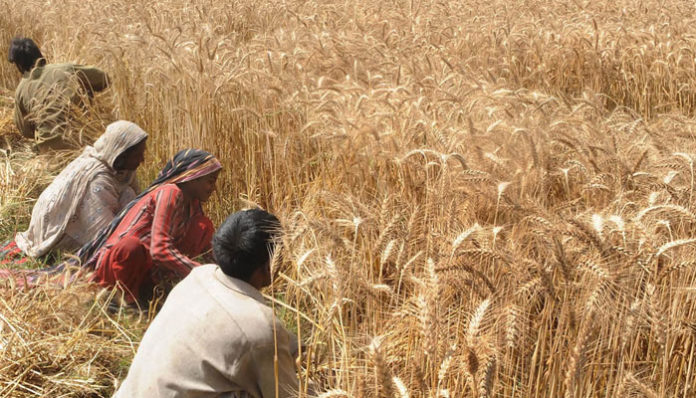ISLAMABAD: The recent inclusion of agriculture sector in the long-term plan of China Pakistan Economic Corridor (CPEC) provides Pakistan with an opportunity to significantly reduce its huge trade deficit of around $9 billion with China, said an annual report titled ‘State of Economy 2017-18’ launched by the State Bank of Pakistan (SBP).
In the agriculture sector, out of China’s global food imports of around $99.6 billion, Pakistan’s share is only around 0.37 per cent (roughly $0.4 billion). The CPEC long-term plan envisages the significant development of the Pakistan’s agriculture sector – an often overlooked area amidst the developments being made in the energy, infrastructure, and industrial sectors of the country.
Pakistan can enhance its exports through various CPEC initiatives and by tapping into the growing import dependence of China.
According to the report, the Ministry of National Food Security and Research (MNFSR), in its 2018 Food Security Policy, envisaged the development of nine agricultural development zones along the CPEC. By encouraging innovation, entrepreneurship, and collaboration, the zones could serve as platforms to develop clusters and infrastructure to nurture emerging rural businesses in an effort to produce commodities deemed exportable to China. These commodities include cereals, dairy, eggs, meat, honey, tobacco, seafood and fruits, and others.
Meanwhile, according to sources in the Planning Ministry, a major progress is expected during the visit of Prime Minister Imran Khan to China early next month where the two countries may sign a legal framework agreement under the corridor to bring investment in the sector and exporting surplus produce to feed the growing Chinese population.
The report stated that in the crop sector, there is a focus on increasing the use of modern machinery and synthetic fertilizers to enhance the yields, while food storage and processing zones would be constructed to reduce significant post-harvest losses.
Similarly, the building of cold storage stations and meat processing plants is also being planned to enhance the productivity of livestock and fisheries sectors besides making their output more competitive in the international market. These developments hold the potential to not only boost the agriculture output of the country but also to narrow the trade imbalance between China and Pakistan by expanding food exports to the former.
The report pointed out that due to the growing demand of processed food in China, the country has been planning to invest in the agriculture sector in all the countries along its broader Belt and Road Initiative (BRI). China has so far invested $3.4 billion in agriculture sector abroad.
The development of the agriculture sector under CPEC can also serve as an opportunity to modernize the processing segment of the agriculture sector. With respect to per acre yield of crops in Pakistan, the report stated that the country lags behind regional economies in this regard and a boost to yields would help enhance the production efficiency of farmland.
Recently, Yuan Long Ping High-Tech Agriculture Company, one of the major Chinese hybrid seed production companies, carried out a monthlong programme in the areas of Swat, Mansehra, Sahiwal, and Larkana to develop a heat-resistant rice seed variety that would enable the crop to be cultivated in all the four ecological zones of Pakistan.
The company also provided training in local research institutions such as the Pakistan Agriculture Research Council (PARC) in hybrid seed breeding and field management skills. Market players predict that the hybrid seed varieties would also be exportable to economies such as the Philippines in the near term, the report added.




